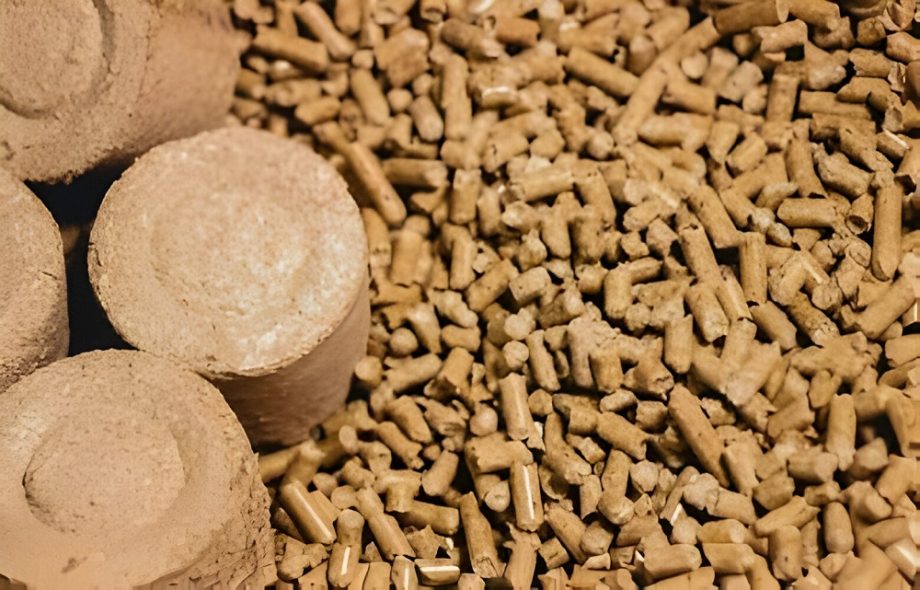A briquettes machine is a smart tool. It helps turn waste into fuel. It presses loose materials into solid blocks. These blocks are called briquettes. They can be used for cooking, heating, or industrial fuel.
If you are thinking about buying a briquettes machine, this guide is for you. Choosing the right one can be tricky. Many types are available in the market. Each machine has different features, prices, and uses.
In this article, you will learn how to pick the best briquettes machine for your needs. We’ll explain everything in simple steps.
1. Understand Your Purpose
Before you buy a machine, ask yourself: Why do I need it?
There are two main uses:
- Home use
- Industrial or commercial use
For home use, a small machine is enough. You can use it for cooking or heating. It’s great for making use of daily waste like paper or sawdust.
For industrial use, you’ll need a larger machine. These machines can handle more material. They work faster and make more briquettes.
Tip: Knowing your purpose helps narrow your choices.
2. Know What Materials You Will Use
Not all machines work with every type of material. Some work best with:
- Sawdust
- Rice husk
- Wood chips
- Paper waste
- Charcoal dust
- Agricultural waste
Others may need special binders to help materials stick.
Tip: Choose a machine that fits your raw material type. If you’re using mixed materials, go for a more flexible model.
3. Decide on the Machine Type
There are several types of briquettes machines. Each works in a slightly different way.
a. Manual Briquettes Machine
- No electricity needed
- Hand-operated
- Best for small use
- Low cost
b. Screw Briquettes Machine
- Uses a screw to compress material
- Produces hollow or solid briquettes
- Great for charcoal and biomass
c. Piston Press Briquettes Machine
- Uses a piston to press material
- Makes solid and dense briquettes
- Suitable for high-density waste
d. Hydraulic Briquettes Machine
- Uses hydraulic pressure
- Ideal for metal or biomass waste
- Quiet and smooth operation
e. Roller Press Machine
- Uses two rollers
- Often used for coal or industrial waste
- High production capacity
Tip: Choose a type based on your needs and material type.
4. Check the Output Capacity
How many briquettes do you need in a day?
For home use, a machine with a low capacity (30–100 kg per hour) is enough.
For commercial use, you may need a machine that can produce 500 kg or more per hour.
Tip: Don’t buy a machine too big or too small. Match the machine’s output to your daily needs.
5. Power Source and Energy Use
Different machines use different power sources:
- Manual (no power needed)
- Electric
- Diesel-powered
Manual machines are cheap but slow. Electric machines are faster and easier to use. Diesel machines are good for places without steady electricity.
Also, check how much power the machine uses. A high-power machine will increase your running cost.
Tip: Pick a power source that suits your location and budget.
6. Look at Machine Size and Space
How much space do you have?
Some machines are compact. Others need more room. Also, check if you need extra equipment like dryers or crushers.
Tip: Make sure the machine fits well in your home, workshop, or factory.
7. Consider Maintenance and Durability
A good machine should last many years. Choose one made of strong metal like steel. It should be easy to clean and maintain.
Ask the seller:
- How often does it need servicing?
- Are spare parts available?
- Is there a warranty?
Tip: A low-cost machine may not last long. Spend a little more for better quality.
8. Compare Prices and Value
Briquettes machines come in many price ranges:
- Manual machines: $100 – $300
- Small electric machines: $500 – $1,000
- Large industrial machines: $2,000 and above
More expensive machines often offer better speed, strength, and features.
Tip: Don’t just look at the price. Consider the value, features, and support you get.
9. Read Reviews and Ask for Demos
Before buying, read customer reviews online. You can learn a lot from other users.
If possible, ask the seller for a demo. Some sellers share video demos or offer test runs.
Tip: A demo helps you see if the machine is easy to use and performs well.
10. Check After-Sales Support
Good customer service is important. Check if the company offers:
- Installation support
- Training or manuals
- Easy-to-reach customer care
- Fast delivery of spare parts
Tip: A machine with strong after-sales support will save you stress in the long run.
Conclusion
Choosing the right briquettes machine is not hard if you follow the right steps. First, know your purpose and material. Then, pick a type and size that fits your needs. Always compare prices, read reviews, and check support options.
A good briquettes machine will save you money, reduce waste, and support clean energy. Whether for home or business, it’s a smart and eco-friendly choice.
Take your time, do your research, and choose wisely. The right machine can make a big difference.
 :
https://www.pinterest.com/jaykhodiyar/
:
https://www.pinterest.com/jaykhodiyar/

